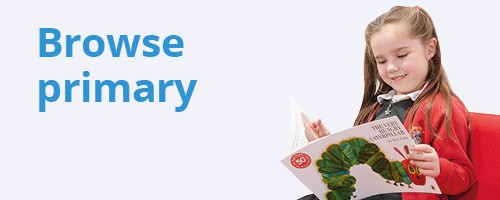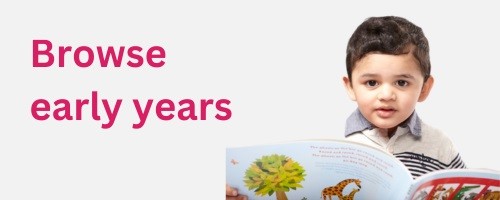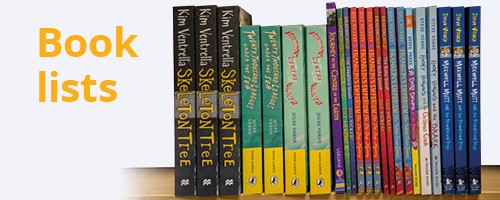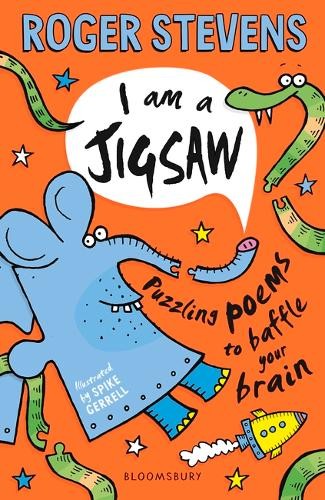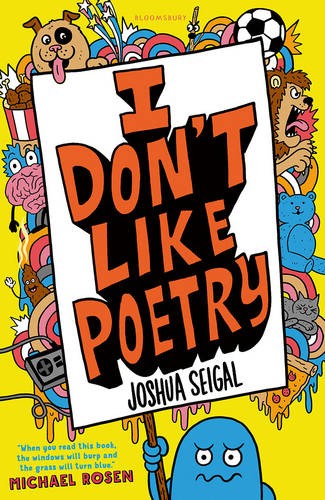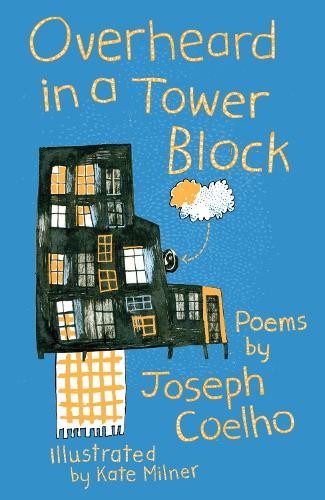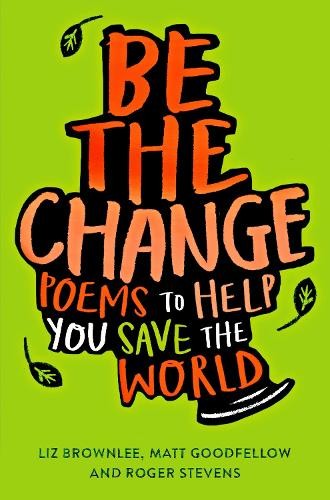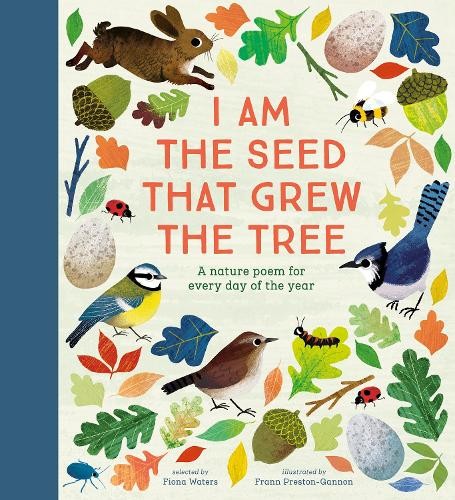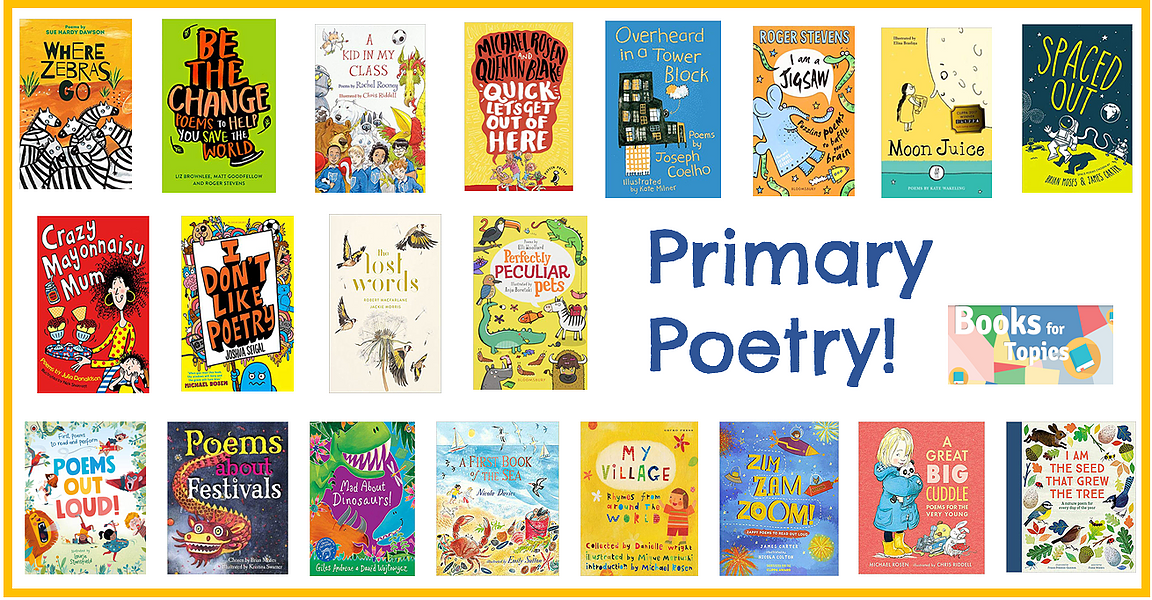Schools please note: due to the summer holidays we will automatically hold all school books and furniture orders due between Wednesday 16 July and Monday 1 September 2025. Delivery will resume from Tuesday 2 September 2025. If your school remains open for deliveries during the summer and you would like to receive your order during this time, please get in touch in advance by calling 0121 666 6646 or emailing hello@peters.co.uk.
For help, advice and telephone ordering call our team on 0121 666 6646
Are you sure you wish to delete this basket?()
This action cannot be undone.
Sorry, something went wrong
Please report the problem here.
Beyond National Poetry Day: 5 Tips for Igniting a Love of Poetry

October 6th 2021
We recently launched a new partnership with BooksForTopics, the popular website that supports schools in finding great books to enrich their curriculums. To celebrate National Poetry Day, Alison Leach, BooksForTopics founder shares five tips for teachers looking to tap in to the potential of poetry in the classroom.
If you ask a group of adults what comes to mind when they think of poetry, they will be likely to draw on their own classroom experiences. Episodes of learning or reciting classic poems may come to mind. Some may quote Wordsworth’s Daffodils, recite a Shakespearean sonnet or recall a text from an old GCSE anthology. Others are likely to perform a playground rhyme or limerick, but not many will claim to find poetry truly joyful. Like it or not, our response to poetry as adults has been shaped by school experiences that too often failed to tap into the diverse energy, wordplay, emotion and connection to human experience that poetry is able offer.
As teachers, when we explore poetry with primary pupils, it’s easy to underestimate the potential of poetry to reach far beyond the English lesson. The sparks of enjoyment and connection that children experience in primary poetry experiences can last for a lifetime. How do you ignite a love for poetry and bring the poetic experience to life for children?
Here are five tips for teachers looking to tap into the potential of poetry to make a long-lasting impact and a few suggestions for poetry texts, all of which are included in our Primary Poetry Book Pack.
1. Find the funny
The freedom of poetry as a literary form invites language play in a way that lends itself brilliantly to creating humour. The double hit of a poem that describes something funny and one that sounds funny when read out loud often makes poetry a big winner for entertaining children.
A little while back we consulted with teachers and school librarians about the most popular books in their libraries. We were aiming to find out the most enjoyed books for each year group as part of the research for our 50 Recommended Reads lists, and one response that came up again and again was Joshua Seigal's funny poetry collections - which, teachers reported, flew off library shelves like hotcakes when readers in Key Stage 2 were around. Subsequently, Joshua won the 2020 Laugh Out Loud Book Awards with his collection I Bet I Can Make You Laugh, which was voted for entirely by children.
Seigal’s poems are categorised by his love of language and humorous insights into all aspects of life (including poems that offer some very useful advice for all situations, like Don't Forget Your Trousers). Many of the poems are brilliant to read aloud – filled with a perfect concoction of onomatopoeia and alliteration that just make them funny to listen to. Others hold a visual appeal that makes them best for experiencing straight off the page (like super-alliterative shape poems or poems that fill the page with one big visual pun). These poetry collections present the opportunity for pupils to explore silly poems, witty poems, wise advice and even a poem made up entirely of numbers - simply inviting children to enjoy poetry’s unique ability to be boundlessly playful and to entertain through words and sounds.
Give pupils time to explore funny poems by including them in your read-aloud anthologies and making sure that humorous collections like Joshua Seigal’s I Don’t Like Poetry and Roger Stevens’ I am a Jigsaw are available to browse as reading for pleasure choices.
2. Connect to real-life experiences
Poetry can capture experiences, moments and abstract thoughts in a unique way. Reading poems that relate to family life, classroom escapades and the essence of childhood can be received by children as an invitation into the poetic experience. Similarly, introducing children to a diverse range of poets from various cultures and backgrounds gives a clear signal that poetry connects all different people, with no need for exclusions or barriers to entry.
One of the most popular collections from our Primary Poetry booklist is Overheard in a Towerblock by Joseph Coelho. Through the collection, the poet shares relatable real-life experiences – from simple everyday memories like the time he was given a special pair of trainers from his dad and the feeling of getting into trouble at school to life events like dealing with parental separation and receiving exam results. Children in Upper KS2 will find much to connect with here, with moments and memories expressed through rich language, rhythm and lyrical description in a range of different poetic formats.
As pupils are introduced to a diverse range of poems, give space to let them look for connections, discuss with peers, pose questions and explore parts of the poems that link to their own experiences. Some schools achieve this by displaying poems in shared areas for pupils, staff and parents to discover and discuss at their leisure.
3. Tap into the power of performance
Another way to invite children into the world of poetry is to make performance an essential part of their experiences. Give pupils the opportunity to hear a wide range of poetry being performed. The Authors Aloud website lists poets who offer school visits, and there are also many videos available online of poets performing their own work. Michael Rosen’s video bank is a phenomenal resource and for me, watching Michael perform Chocolate Cake or No Breathing in Class will never, ever grow old. Karl Nova’s hip-hop style performances will also be a sure-fire hit with older children. Ask pupils to consider how each performance brings the poem alive, drawing out the way the rhythm of the voices and dialects adds a new dimension to the poem or how facial expression and body language accentuates the meaning of the words.
Pupils also need time to enjoy being the performers of poetry themselves. Give pupils space and freedom to be as creative as they wish as they bring the words off the page, and organise an audience to give the performances purpose. Termly poetry performance assembles or ‘poetry slam’ events can be a successful way of encouraging the joy of performance poetry across the school.
4. Leverage the emotive response
Poetry can evoke powerful emotive responses and it can be wonderful to watch the reaction of pupils when you share poems on topics that children deeply care about. It is often difficult to put the strongest emotions into words, and poetry has an incredible power to communicate those just-out-of-reach thoughts and emotions that children have not yet found a way to vocalise.
Be The Change: Poems to Help you Save the World is an anthology from National Poetry Day Ambassadors Liz Brownlee, Matt Goodfellow and Roger Stevens, who come together to create a collection of positive poems about looking after the planet. The collection explores the theme of sustainability without the doom and gloom that can too easily dominate conversations about climate change – instead encouraging positive steps that make an impact on the world around us. For pupils who care deeply about climate change and want to find a way to make their feelings heard, why not try memorising some of the poems as a class and putting together campaign videos? By leveraging the power of poetry to evoke a response to big topics, pupils are likely to make connections with the literary form and enjoy the opportunities it presents to give a voice to what really matters to them.
5. Think beyond National Poetry Day
Build on the enthusiasm sparked by your National Poetry Day activities by aiming to create a poetry-friendly classroom all year round. This means cultivating an ethos where sharing poetry is an everyday occurrence and intentionally giving opportunities for children to hear, see and share a range of poems in informal ways. Keeping an anthology on your desk makes it easy to pick up a relevant poem when you have a spare minute at the end of a session or just after lunch. I recommend anthologies like I Am the Seed That Grew the Tree: A Nature Poem for Every Day of the Year to make it really easy to find a new poem for each day.
Make space for children to discover poems for themselves from your classroom library and to share what they love by reading them aloud or by copying poems into a combined class book or display area. School leadership teams can assist by establishing a Whole School Poetry Plan and encouraging teachers to develop subject knowledge by sharing poems in staff meetings and making a diverse range of poetry available for teachers to explore for themselves. Looking for ways to connect with professional poets can support the love of poetry across the school and you may find a resident poet or Patron of Poetry who can work with you to develop your Whole School Poetry Plan. Consider getting involved in annual poetry awards or join the CLiPPA Shadowing Scheme as a school, which is a fantastic way for children and staff to be part of celebrating newly published poetry.
When someone asks your pupils in 20 years what they think of poetry, let’s hope that the spark in their eyes reflects memories of laughing out loud at funny poems, of finding themselves reflected between the lines, of exuberant performances, of hip-hop or poetry slams, of personally sharing poetry that moves others to respond and of being surrounded by a rich diversity of poems in all their forms.
The BooksForTopics Primary Poetry Booklist is available to view online or to purchase as a book pack from Peters.

Alison Leach is the founder of BooksForTopics, a website that supports schools in finding great books to enrich their curriculums and to promote reading for pleasure. As an experienced primary teacher, Alison knows that it is not always easy to source the right books amid the time pressures of teaching and she is passionate about helping the best books reach the spotlight.
Visit BooksForTopics.com to find out more, or follow Alison on Twitter or Instagram as @booksfortopics.

